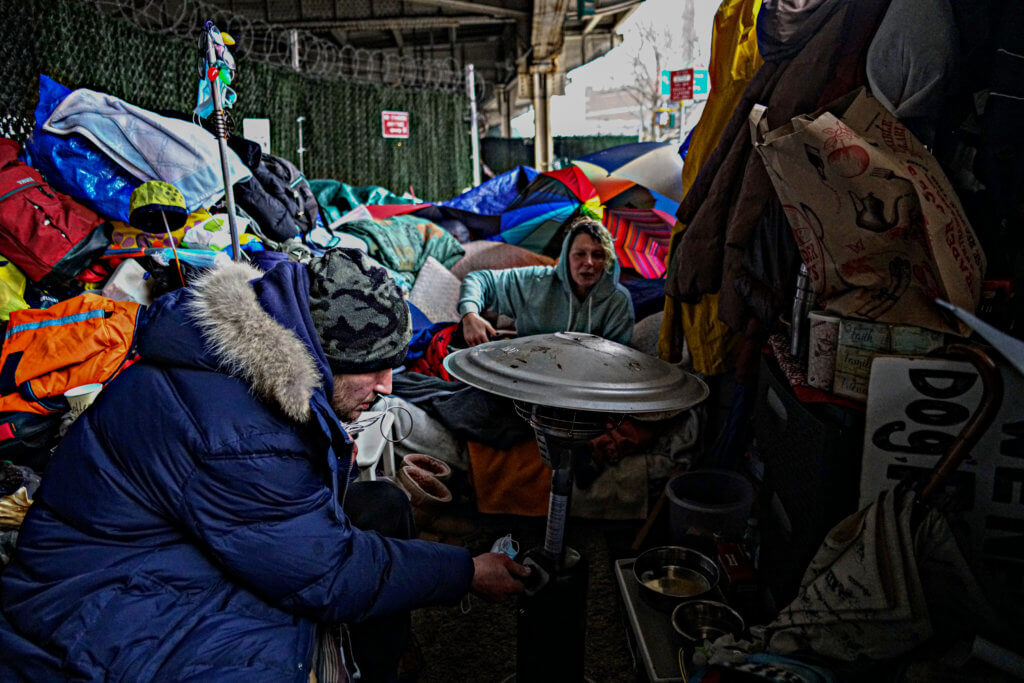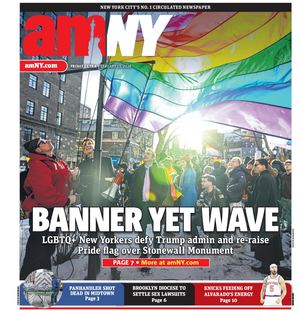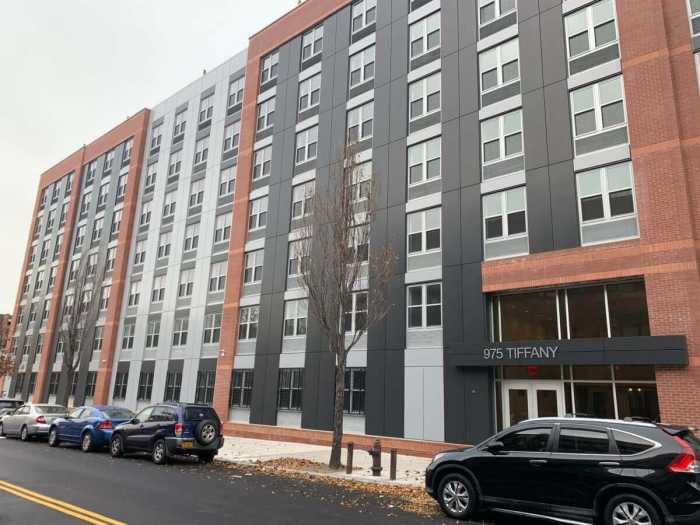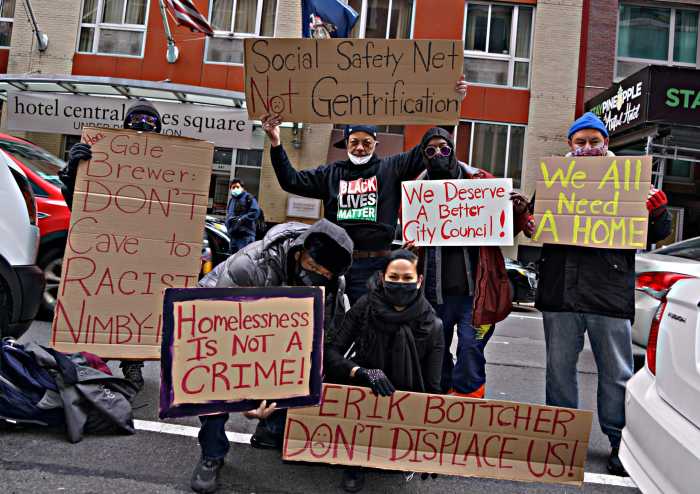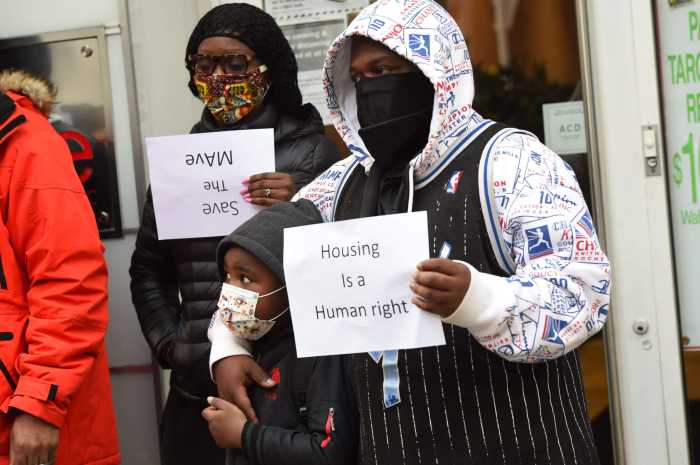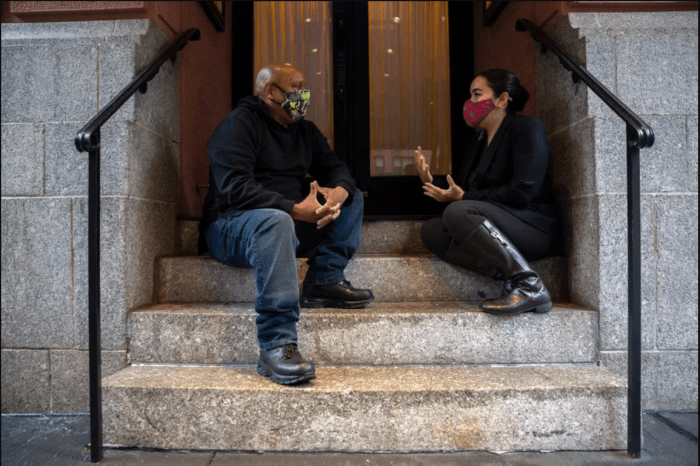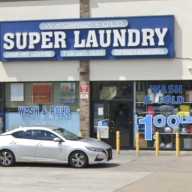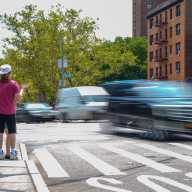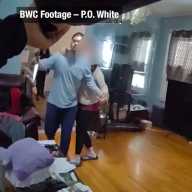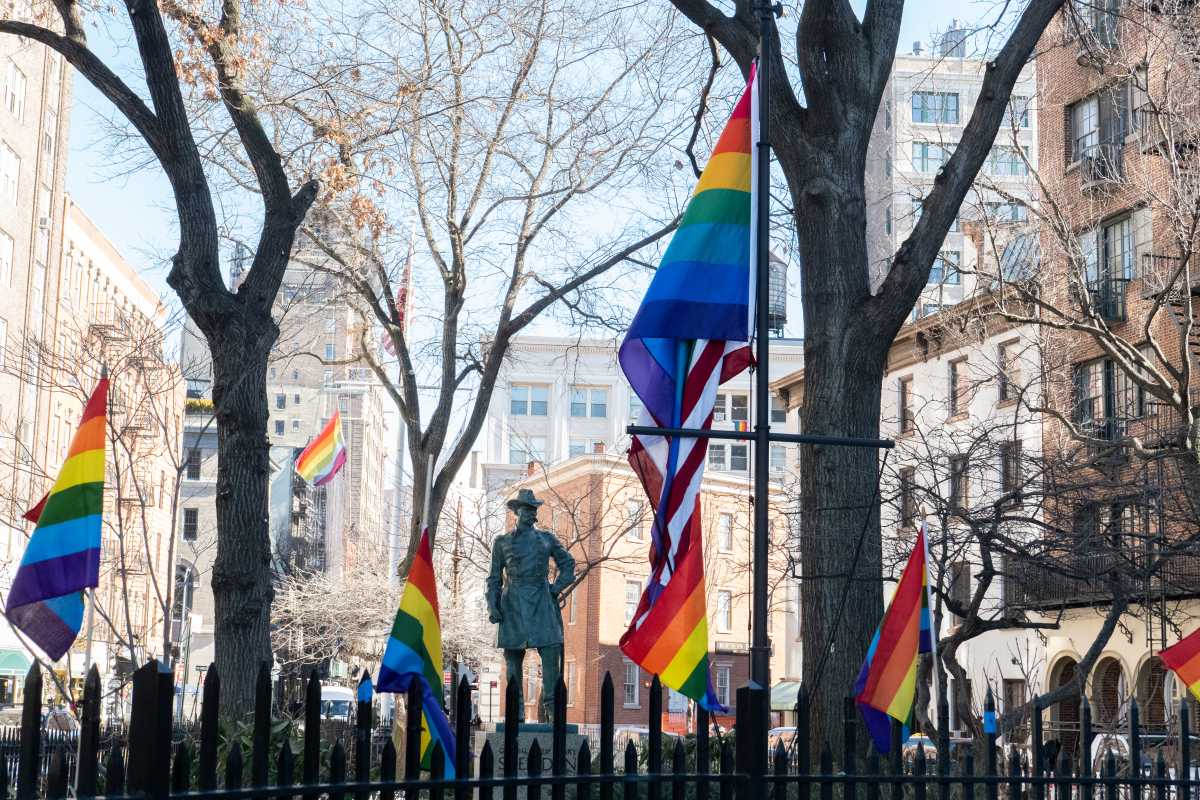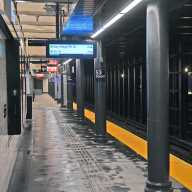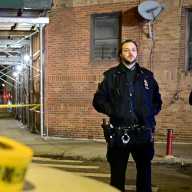Alex Lively and April Saccoccio are akin to any married couple. They dote over their two pet dogs named Buddy and Snoopy, they rest their weary feet on a plush carpet, and they cook themselves dinner every evening.
But they do not have a typical home — so they made themselves one under the FDR Drive in Lower Manhattan.
For the past 10 months, the pair have built a makeshift home under the trestle of the famous highway, as thousands of cars rumble overhead daily. They’ve used found objects and donated items along the way, including a panel room divider, a series of large umbrellas, and art canvases, to provide themselves with some semblance of seclusion from the passing world just outside of what is swiftly becoming a rather large encampment.
Inside these crude walls they own a mattress, a heater, hand sanitizer, and even a beauty mirror — things found in the majority of households throughout New York. They likewise own cellphones and portable chargers they power up at public outlets. Their pets lounge in dog beds and chomp down on bones. This small patch has become a haven of their own making.
The sizable shelter is also now a recognizable monument to many motorists, pedestrians, and nearby residents, but not all consider it an eyesore.
Over the course of their brief tenure in the neighborhood, they have swiftly become accepted members of the community, telling amNewYork Metro that they credit local residents with their survival who often stop by for a chat, and often gift them with food and money.
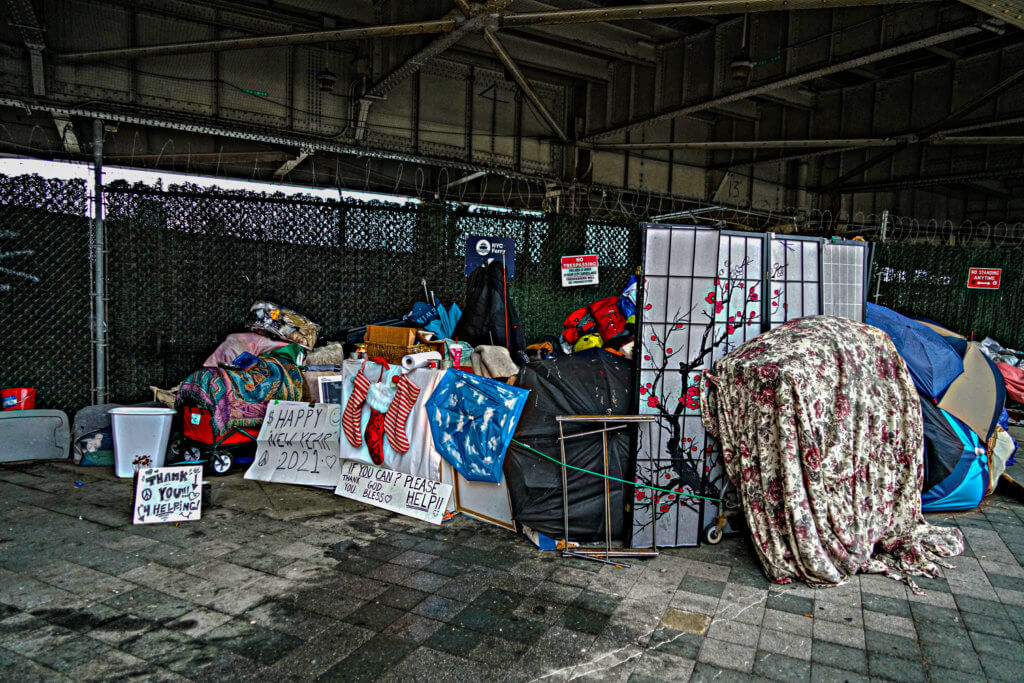
“Believe it or not we came here with three little carriages and some blankets. A lot of this stuff you see is what people have given us. People have really made life easier for us. It’s like a bedroom, just outside. New Yorkers are awesome,” Lively said as he cooked some noodles for his wife on their barbecue stove, fueled by small ethanol heat cans.
Lively became homeless after suffering from a severe shoulder injury that required surgery and, in turn, prevented him from continuing his profession as a masonry apprentice and other blue-collar work.
Homelessness was neither an overnight process nor a choice. After three years of struggling, selling his car and using up his entire savings, he had nothing left.
Although they were already living rough on the streets prior to the advent of the COVID-19 virus, the couple moved to their current dwelling in direct response to the pandemic, which they say is terrifying since their future seems to be more uncertain than ever. Swirling rumors amongst the homeless population generated a sense of unease regarding where they could be forced to relocate.
“At the beginning of the pandemic we were in Times Square. We saw how everything was getting shut down. There was talk of the national guard coming in and making people get off the streets, so we were nervous,” Lively explained.
With the lockdown imminent, the pair moved downtown in hopes of finding sanctuary from COVID-19, and all the implications that it wrought.
“Being here was the best move that we made because we are away from everybody. It’s not like everybody is coming over here.”
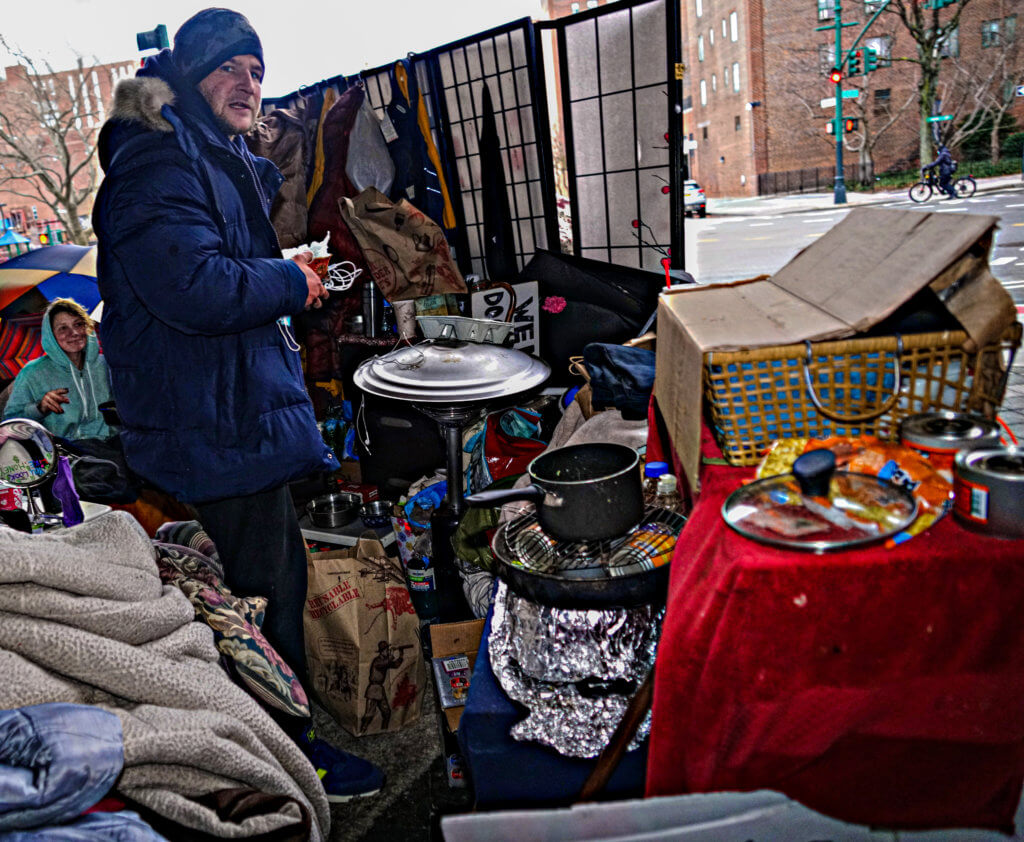
Although they now consider the area home, living here isn’t easy.
They’re subjected to a small number of people have been known to stop by and gawk at their unique home. The husband-and-wife team also say that at least one of them must be present at the encampment at all times, otherwise other homeless individuals will attempt to take their belongings.
They also claim that the NYPD does not take their call for aid seriously during times when thefts have occurred.
“The [thieves] were trying to take stuff off of our persons—that’s robbery! I called the cops trying to do it the right way, but they didn’t arrest them. They just let them leave because they found out we are homeless, so it’s like we don’t have rights. We are not drug addicts; we are not crazy—we are just like normal people,” Lively and Saccoccio said.
With the dawn of a new year, Lively and Saccoccio are looking to 2021 with hopeful eyes, like countless other New Yorkers.
This little bedroom on the street is not their ideal homestead, nor is it where they foresee themselves spending the majority of their future. One day soon they hope to move to a building with four brick walls and a roof, but first they will need to overcome some obstacles.
“They had a room for us at a hotel, but my wife is disabled, and her dogs are emotional support animals. They [the hotel] are telling us we need paperwork to declare the dogs as support. We just need the paperwork. It would be nice to be able to shower regularly,” Lively joked.
To them, their two dogs are as much a part of their family as any human. They have traded the security and comfort of a warm room for their beloved animals. Dangers are rife on the streets, in the cold, during the night, especially since foot traffic has slowed to a crawl due to the pandemic. To counter the harshness of the world as it is, Lively and Saccoccio live by a code of love, to each other and their pets, it is through this code they hope the world will not be so judgmental toward them in return.
“We are just as normal as anyone else really… maybe even more normal,” Lively agreed.
